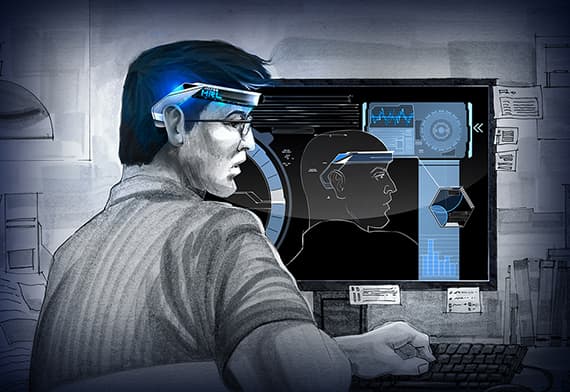Specially Engineered Head Cap Could Remarkably Enhance Human Skill Acquisition Capacity
Dr Matthew Philips and his team from the HRL laboratories has successfully incorporated brain activity patterns of commercial and military pilots inside a novice test subject, having little idea regarding flying aircrafts. Owing to the transcranial direct current stimulation (tDCS) technology, the test subjects were able to learn how to pilot an airplane in a realistic flight simulator.
Such skill enhancers are nothing new if we consider sci-fi movies such as Matrix, but in reality it is something to look out for. Phillips expressed that in order to realize their goal, they have actually glued an electrode-embedded head cap on the subjects. Ultimately, they compared the measured value of the average g-force of the plane during the simulated landing with the control subjects who had undergone a brain stimulation training.

Previous research in the same field had portrayed that a tDCS signal can boost the brain and heal neural impairments. However, this study takes a new direction for the current researchers in the field of artificial intelligence and neural systems. HRL’s findings are the first to ensure the fact that the tDCS signal can help improve practical learning.
Philips also asserted that it might not take long for us to witness tDCS enabled smart classroom environments. It will be indeed an effective and direct way to feed the information. The complete report was published in the February 2016 issue of the Frontiers in Human Neuroscience journal.
Watch enhanced training through neurosimulations:
Such skill enhancers are nothing new if we consider sci-fi movies such as Matrix, but in reality it is something to look out for. Phillips expressed that in order to realize their goal, they have actually glued an electrode-embedded head cap on the subjects. Ultimately, they compared the measured value of the average g-force of the plane during the simulated landing with the control subjects who had undergone a brain stimulation training.

Previous research in the same field had portrayed that a tDCS signal can boost the brain and heal neural impairments. However, this study takes a new direction for the current researchers in the field of artificial intelligence and neural systems. HRL’s findings are the first to ensure the fact that the tDCS signal can help improve practical learning.
Philips also asserted that it might not take long for us to witness tDCS enabled smart classroom environments. It will be indeed an effective and direct way to feed the information. The complete report was published in the February 2016 issue of the Frontiers in Human Neuroscience journal.
Watch enhanced training through neurosimulations:
Source: #-Link-Snipped-#
0

